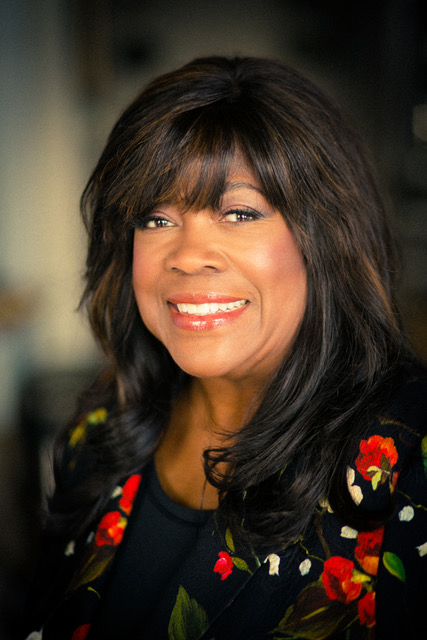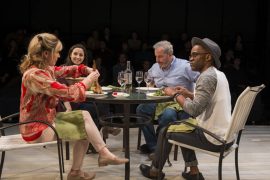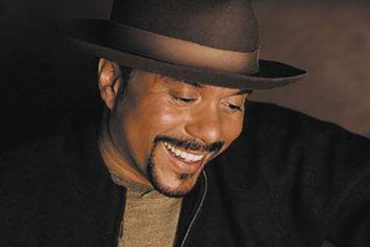On a rainy afternoon in late June, I sat with Chaz Ebert, lawyer, entrepreneur, and widow of the late Chicago film critic Roger Ebert, in the cozy living room of her Lincoln Park townhouse. We discussed her new book, It’s Time to Give a FECK: Elevating Humanity Through Forgiveness, Empathy, Compassion, and Kindness. She shared with me the life experiences that compelled her to share her belief in the power of these principles. Our conversation below has been edited for clarity and length.
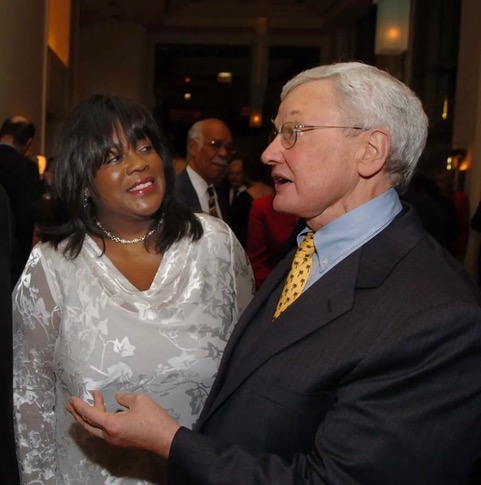
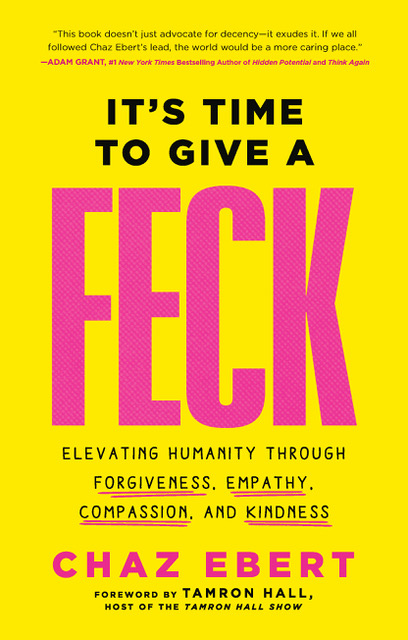
Rebecca L. Ford: How did you come to write this book?
Chaz Ebert: I just started writing the book because of all the compassionate things that were happening around me as [my late husband, movie critic Roger Ebert] was dying and after he passed away in 2013. So many—I call them angels on earth—surrounded me with so much love and compassion. People were so kind, I started writing about some of those things that people were doing. I didn’t set out to write a book for the world. I just started writing about what I saw happening around me.
As I get older, I feel that I want to surround myself with good people. Writing the book made me a better person because I felt that I couldn’t put this book out in the world and not walk the talk.
There were so many times that I stopped writing the book, saying, this is going to sound too goody two shoes. Who’s going to want to read this? And then I said, I just have to trust in the universe. I just have to trust the process.
What gave you the courage to write a book?
I’ve written my entire life. I didn’t always write for publication. Why did I write this book for publication? The real answer is, I don’t know.
I want people to know that even if you don’t have an embracing family, you can create your own family around you. I am the eighth of nine children. I feel that I was very fortunate to be born in the family I was born in because I had a loving mother, a loving father, and loving sisters and brothers. We lived on the West Side of Chicago. My dad used to work in the stockyards, and then the stockyards closed. After that, he drove a cab. But he took care of his family. So, I never felt a lack of anything. Maybe because we knew we were loved.
I know everybody doesn’t have that. That’s another reason I wrote the book. Family doesn’t have to be a family you’re born into, it could be a family that you surround yourself with, friends or people in a life circumstance.
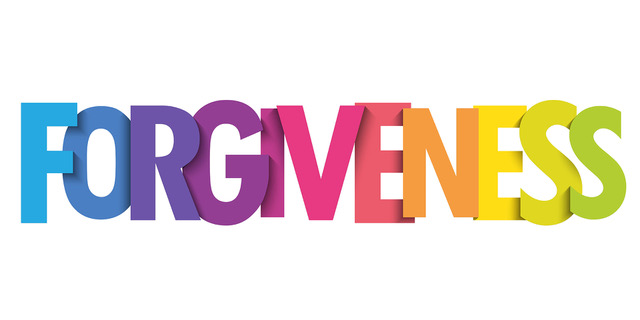
Even when you had an experience that some people would judge and call negative, it was a positive experience for you because of forgiveness.
This was 1969, when I went off to college. Back then in 1969, if you had a child out of wedlock, that was considered something shameful. Especially if you were a Black teenage girl from the West Side of Chicago. You felt humiliation and shame. I felt I was letting my family down. And the results could have been very different. I could have dropped out of school even though from the time I was six years old, I knew I wanted to be a lawyer. All those dreams were gone in my head. But when I called my family and fessed up, they surrounded me, and embraced me and said, we will work it out. It was so beautiful. I realized the person I had to forgive was myself.
One of the points that you make is that people have to show FECK principles toward themselves as well. You forgave yourself.
I talk to so many people who beat themselves up for so many things. And I say, why don’t you just forgive yourself? If a friend did this to you, would you forgive them? Yes. Well, then, you need to forgive yourself. because there are so many times when we are our own worst critics.
In the New York Times, there was an article recently about forgiveness being overrated. Look at Dylann Roof who shot up the Emanuel Church prayer group in South Carolina. They couldn’t forgive him fast enough.
This is what I sincerely believe. There has to be a point where you come to grips with things. In some situations, the person on the other side shows some remorse or has some feeling of wanting to right a wrong. Now, in other situations, some people are so good that they may forgive someone to let go so that they can move on. Even if the other person, quite frankly, hasn’t done anything enough to be forgiven. In the Dylann Roof situation, I would like to speak to those women in person. I’d like to know why did you forgive him? He didn’t seem like he had any remorse for what he did.
This is why the big F forgiveness is so difficult for some people to understand. The women who said that they forgave him said they also did it for themselves. It was biblical. They were Christians. The Bible told them to forgive. Their forgiving lifted a weight from their shoulders that they didn’t have to carry and drag around. They still got to grieve the loss of their loved ones who were killed. But they felt that they got right with their God. They were able to open their hearts to forgiveness in a way that made them not carry around the weight of hate and revenge.
Archbishop Desmond Tutu said when you forgive that you allow yourself to let love and light come back into your life. That’s what I like about forgiveness.

In your book you say that sympathy means you feel sorry for someone, whereas empathy means you experience what it is like to be someone else.
Sympathy is good, too. But sometimes I think that sympathy can come off as hierarchical or, I’m better than you. You poor thing. I’m going to feel sorry for you. Whereas empathy says I understand what it’s like.
You say that empathy is a practice that we cultivate.
It’s a practice that you have to do every day, several times a day. That’s true for all four [of the FECK principles]. To me, especially compassion and kindness, are like a muscle. The more you use them, the stronger they get.
I was reluctant to put the thing about my childhood in the book, because people might say, you were loved but I wasn’t loved. I don’t trust people. How can I be kind?
You know what? You have to learn it. And the more you do it, the stronger it gets. The more acts of kindness you commit, the kinder you become, the more you reach out and become empathetic to another person, the more compassionate you become. You do!
What is the role of movies in imparting empathy?
Watching a movie opens your eyes to what someone else is going through.
My late husband, [movie critic Roger Ebert], said that movies are machines that generate empathy. He felt that by putting yourself in another person’s shoes, figuratively speaking, for that two-hour film, you can be a person who is different from you.
Roger felt that the most noble thing that good movies can do is help us empathize with people in different circumstances.
Sometimes, we hear about a case that we don’t know that much about. And then someone makes a movie about it. And you realize, oh, there was more to this than I thought. And you start to ask yourself, what would I have done? And you start empathizing with someone, even though they’re nothing like you. Something about their situation touches the humanity in you. Something lights a fire in you to at least try to understand somebody else’s point of view. Movies are good at that. Lived experiences are even better. But movies are sometimes an entry point.
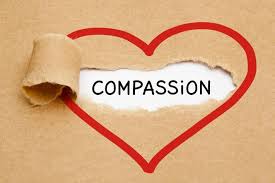
You describe compassion as something that happens when we take action we know will help others, even when they are not able to articulate their needs.
The thing that really helped me write the compassion part of the book is thinking about how I sat in that hospital, day after day with Roger, sometimes when he was barely there. I would sit in that room sometimes almost without hope. And people knew that I was there.
The reason I emphasize that even small acts matter is this: the most important thing that someone did then was bringing me water. I was not drinking water. And somebody looked at me, and they were like, you can’t sit here in the hospital all day and not eat food, and not even drink water. So, people would bring me water every day. And then sometimes people would bring snacks or something. Little things.
Sometimes people are in such grief that they can’t think, they can’t articulate. They don’t even know what they want, or what they need. So sometimes you just have to watch and figure it out. This is what people did for me. They started offering specific things that they thought they knew I needed done.
You know, they say people may not care about you until they know how much you care. There are ways to communicate that to people without making them feel small. Sometimes you have to tell them, I’ve been in hard situations myself and I needed help. And I just want to help you.

I never met your mother, but I love her. She seems to have been such a wonderful, kind person. You talk about your mother as being like sunshine.
To me, my mother was a goddess. My mother was a psychic intuitive and she was a minister in a spiritualist church. So, as kids, we joked our mother was a witch because she had six sensory things. We made fun of it.
My mother was so positive. When she walked into the room, she brought the sunshine with her. Kids loved my mother. People loved being at our house. And if we complained about someone, my mother would say, bring that person here. You’re going to do something nice with that person. They probably need your love or your friendship. That’s what she taught me.
Receiving kindness at a young age was important to you. What if people don’t have that?
To me, that’s the biggest reason to write the book. I’ve come to realize there are a lot of adults who need that kind of love who maybe weren’t nurtured like that as kids. It’s not too late. People blossom, even as adults. Your inner child can be nurtured as an adult if you surround yourself with good people. And if you go out and practice those things, even if you didn’t have it but you start practicing it, it changes you even as an adult.
Talk about developing that within yourself–being kind to yourself, being kind to other people, and being able to receive it.
It does become a reciprocal act, even though we don’t do it just to get it back. There’s no way that giving or being kind doesn’t change you. It makes that person feel good, but also makes you feel good, and helps that person to grow and evolve. It also helps you to grow and evolve. I really saw it in kids that my mom used to take in. I saw them blooming like flowers.
For some people, it’s hard to receive acts of kindness if they’re not used to them. That’s why I put the journaling in, at the end of each chapter. I tried to leave pages for people to start really thinking about it, and where they can start practicing some of these things–how they can let some of these principles come alive in their own lives.
People are reading this, and it stirs something. They don’t want to wait. They want to do it right then and there. I love it when people tell me they read the book and started doing the exercises and now they want to go and forgive someone, or go have a conversation with someone, or want to go volunteer. I love it that they can read it and start taking some action right away.
The smallest thing is just smiling and saying hello. It can help change somebody’s day and you just never know what somebody’s going through.
It’s Time To Give a FECK!

The FECK acronym is a great distillation. Once you know that’s what it stands for, it’s easy to keep the FECK principles in mind.
At first the publisher didn’t want me to use that title. It sounds like the other F-word. FECK is provocative. It’s kind of cheeky and in your face. This is a four-letter ‘F‘ word that means love and unity. That’s why it was so important to me to have the subtitle of the book: Elevating Humanity Through Forgiveness, Empathy, Compassion, and Kindness, so people know that FECK is an acronym for these words.
If there are two words I want to say from this book, I’d just say, be kind. Be kind.
I’d like to take this book to Washington and deliver a book to every single senator and congressman, and just give it to them for free.


